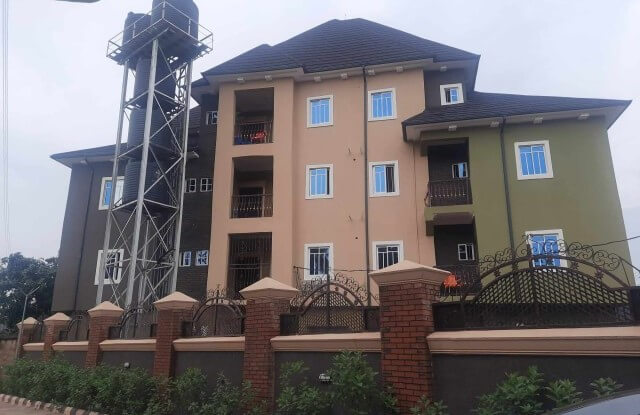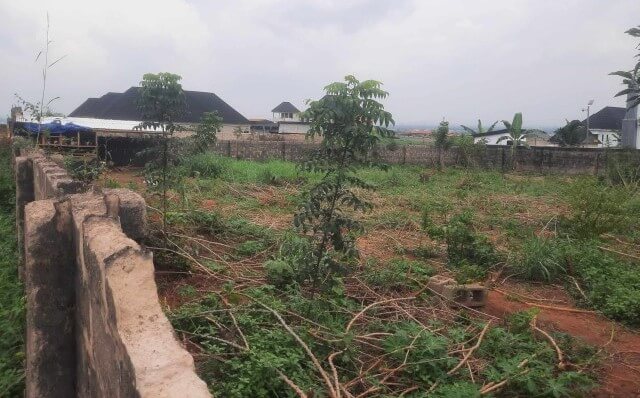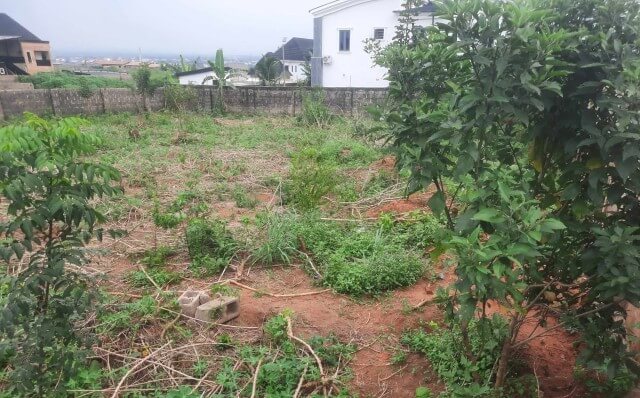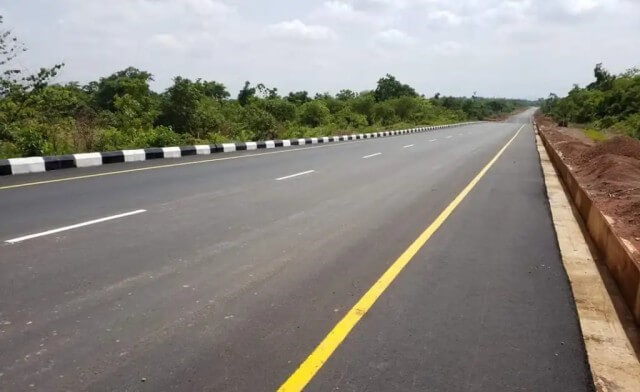When you verify the authenticity of a property in Enugu before making a purchase, it will save you from potential legal issues or financial loss.
Typically, this means conducting due diligence to ensure the property is legitimate, free from encumbrances, and legally transferable.
This guide will walk you through the essential steps to confirming any property’s authenticity, helping you make an informed and secure decision in your real estate transaction.
By following these steps, you can confidently proceed with your purchase, knowing that you’ve taken all necessary precautions to protect your interests.
1. Confirm the Ownership of the Property
The first step when you want to verify the authenticity of a property in Enugu is to confirm who the true owner is.
You should request the owner to provide you with the title documents, which typically include a Certificate of Occupancy (C of O), and a Deed of Assignment.
The C of O is particularly important as it is issued by the Enugu State Government and serves as legal proof of ownership.
Additionally, confirm that the name on the documents matches the name of the person claiming ownership.
2. Conduct a Title Search at the Land Registry
After obtaining the title documents, you should conduct a title search at the Enugu State Land Registry.
This is where all land records within the state are maintained. The title search will confirm whether the title documents are genuine and if there are any encumbrances (such as legal disputes) associated with the property.
This search is typically conducted by a lawyer or a real estate professional who can interpret the results accurately.
3. Survey the Land
Engaging a licensed surveyor to survey the land is another important step. The survey will help confirm the exact boundaries of the property and ensure that the land being shown to you matches what is stated in the title documents.
The survey plan should be registered with the Office of the Surveyor General in Enugu. The surveyor can also check for any overlaps with neighboring properties, which could lead to disputes in the future.
4. Verify the Land’s Zoning and Land Use
It is essential to confirm the approved land use for the property you intend to buy.
You can do this at the Enugu State Ministry of Lands and Urban Development. Zoning laws regulate how land in specific areas can be used, such as for residential, commercial, or agricultural purposes.
When you confirm that the property’s land use aligns with your intended purpose, you avoid future issues with government authorities.
5. Check for Any Existing Disputes or Court Orders
Before proceeding with the purchase, it’s crucial to check if there are any ongoing disputes or court orders related to the property.
You can confirm the legality of buying a property by engaging a lawyer to carry out due diligence.
The lawyer can check with relevant courts in Enugu to confirm if the property is subject to any litigation or if any existing court orders are preventing its sale.
6. Consult with the Local Community
It’s advisable to talk to people in the local community where the property is located. The local chiefs of the locality, or residents often have information about the history of the land and previous ownership.
These people can disclose any disputes that may not be documented.
Never underestimate such informal inquiry. They can reveal red flags that might not surface through official channels.
7. Request for the Execution of a Deed of Assignment
If you’re satisfied with all the verifications, the next step is to request the execution of a Deed of Assignment.
This legal document transfers ownership from the seller to you. The deed must be stamped at the Enugu State Ministry of Lands and Urban Development and then registered at the Land Registry.
This process ensures that the transaction is legally recognized and that your ownership is documented.
8. Get a Governor’s Consent
For a property transaction to be valid under Nigerian law, it must receive the consent of the Governor of Enugu State.
This step is required for the transfer of any interest in land and ensures that the government is aware of the transaction.
The process of obtaining the Governor’s Consent can be handled by your lawyer, and once granted, it should be attached to the Deed of Assignment.
9. Make the Payment and Collect Receipts
Once you complete all the steps above and you are okay with the results, you can proceed with the payment.
Ensure that you receive official receipts for all payments made, including the purchase price, legal fees, and any government levies. These receipts should be kept safe as you may require them in the future for reference purpose.
10. Possession of the Property
After completing the transaction, ensure that you take physical possession of the property. This could involve fencing the property, erecting a signpost, or even starting development, depending on your plans. Taking possession helps to deter trespassers and further establishes your ownership.
Potential Red Flags to Watch Out For
When buying a property in Enugu, it is crucial to be aware of potential red flags that could indicate serious issues.
These red flags might point to inconsistencies in the property’s documentation, unresolved legal disputes, or zoning problems that could affect your ability to use the property as intended.
Paying attention to these warning signs can help you avoid costly legal battles, financial loss, and the disappointment of purchasing a property that doesn’t meet your expectations. By conducting thorough due diligence, including verifying ownership, checking for multiple claims, and ensuring that the property’s land use aligns with your plans, you can protect yourself from potential pitfalls in the property transaction process.
Watch Out for These Red Flags When You Want to Verify a Property in Enugu:
- Inconsistencies in title documents.
- Unregistered or invalid survey plan.
- Reluctance to provide documentation.
- Claims of multiple ownership.
- Pending legal disputes or court orders.
Conclusion
Verifying the authenticity of a property in Enugu requires some effort on your part. This is what we call, “due diligence,” without which you could face significant legal and financial complications down the line.
We advise you to work with professionals like lawyers, surveyors, and real estate consultants who are familiar with the local laws and procedures.
If you follow these steps diligently, you can confidently navigate the process of purchasing property in Enugu so that your investment is secure and you have peace of mind. I hope you learned how to verify the genuineness of a property in Enugu?
Dear investor, don’t be a victim of land scam in Enugu when a genuine real estate company. Reach out to me on +2348033352126 or click on this phone number to send me a WhatsApp message, +2348033352126























Your latest blog post was truly inspiring and had some great insights. I can’t wait to see what else you have in store.